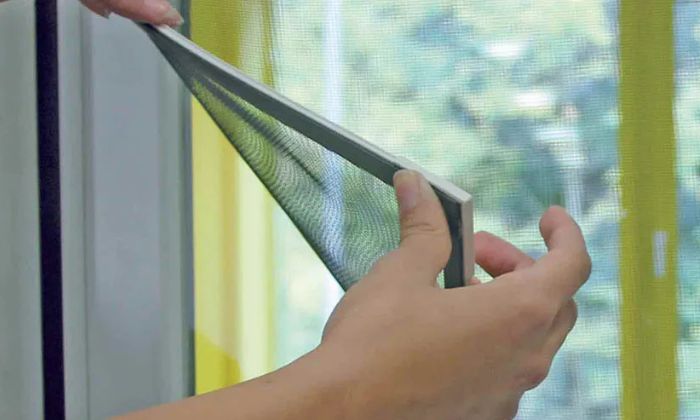A fly screen is your home’s silent hero. It lets in fresh air, keeps out pesky insects, and creates a barrier that enhances your comfort without you even noticing until it gets damaged. That’s when you realize how vital it truly is. But don’t wait for a torn mesh or jammed screen door to show it some love. With regular maintenance, your fly screen can last for years, saving you money and keeping your living spaces breezy, bug-free, and clean.
In this comprehensive guide, we’ll walk you through emotional yet practical maintenance tips from regular cleaning to smart repair tricks so your fly screen always performs at its best. Because when your screen works perfectly, your home feels safer, fresher, and calmer.

Why Fly Screen Maintenance Matters
It Extends Lifespan and Improves Performance
Imagine your screen mesh working flawlessly for 5+ years without sagging, tearing, or discoloring. Sounds perfect, right? That’s what regular maintenance does: it boosts window screen durability and ensures your screen door continues to function smoothly.
It Saves You Money
A well-maintained fly screen prevents costly repairs or replacements. Ignoring a small hole today can turn into a full-screen replacement tomorrow. Proactive care helps you avoid unexpected expenses.
It Protects Indoor Air Quality and Keeps Insects Out
Dusty, torn, or clogged screens affect airflow and insect screening. They block the fresh air you crave and welcome unwelcome bugs. Clean the screens regularly to maintain that refreshing indoor environment.

Regular Cleaning Techniques
One of the simplest yet most overlooked maintenance tips is routine cleaning. But how often should you do it? And how?
- Frequency: Ideally once a month, more often in dusty or coastal areas.
- Tools: Use a soft brush, vacuum with a brush attachment, or microfiber cloth.
- Solution: Mix warm water with mild dish soap for gentle yet effective cleaning.
Avoid harsh chemicals or abrasive tools, which can damage the screening material, especially delicate mesh or aluminum frames.
Step-by-step insect screen cleaning guide:
- Remove the screen from the frame if possible.
- Rinse it with a garden hose or showerhead.
- Scrub gently with soapy water and a soft brush.
- Rinse again thoroughly.
- Air dry or dry completely with a lint-free cloth.
This simple ritual preserves the integrity of your fly screen and ensures smooth operation year-round.
Inspecting for Damage
Even a minor tear can render your screen door useless against insects. That’s why it’s crucial to regularly inspect for signs of wear and tear.
Look for:
- Small holes or tears in the mesh.
- Loose or sagging screen mesh.
- Bent or rusty frames.
- Difficulties opening or closing the screen door.
Early detection can prevent bigger problems and ensure your screen remains effective for both ventilation and insect control.
Repair and Replacement Tips
You noticed a damaged screen now what? Should you replace it or can you repair it?
Quick Mesh Screen Repair Tips:
- Patch Kits: Available at hardware stores, these come with adhesive-backed patches for tiny tears.
- Super Glue or Clear Nail Polish: Temporarily seal a small hole in fiberglass mesh.
- Replacement Roll Mesh: For large tears, you may need to replace the screening material entirely.
If your screen is aluminum, be extra careful. DIY repairs on metal mesh require precision. Proper aluminum screen upkeep ensures it doesn’t warp or become brittle over time.
For screen door tracks or hinges, clean the moving parts and apply silicone spray to ensure smooth operation.
If repairs seem beyond your skill level or if you’re unsure whether a screen is salvageable it might be time to call in a professional (more on that later).
Seasonal Maintenance Checklist
Weather plays a big role in the wear and tear of your fly screen. Whether it’s rain, dust, snow, or heat, each season has its challenges.
Here’s a quick seasonal guide to protect your screens:
Spring & Summer
- Clean the screens thoroughly at the start of the season.
- Inspect for damage from winter.
- Ensure all screens are reinstalled and working properly for increased airflow and bug protection.
Autumn
- Check to prevent damage caused by falling leaves or debris.
- Tighten loose frames before winter moisture worsens them.
Winter
- Remove and store screens if not needed to protect from snow or freezing.
- If left installed, dry completely after snow melts to avoid rust or mold.
Being proactive with weather conditions helps maintain both function and aesthetics.
Preventive Care Tips
Prevention is always better and cheaper than cure. The following habits will extend the life of your fly screen and reduce the need for repairs.
Avoid Harsh Cleaners
Prevent damage to the screen mesh by using only gentle solutions like warm water and mild soap. Bleach or abrasive cleaners can degrade the material quickly.
Be Mindful of Pets and Children
Pets may claw at screens, and kids may lean or push against them. Install screen guards or protective panels at the bottom half of doors or windows to prevent screen door damage.
Use Protective Barriers
Consider installing protective barriers such as retractable covers or placing potted plants strategically to block physical contact.
Keep Hinges, Tracks, and Frames Clean
For sliding doors or windows, clean the tracks regularly to ensure smooth operation. Dirt buildup can cause unnecessary strain on the screen door, leading to premature failure.
When to Call a Professional
Sometimes, no matter how careful you are, your fly screen will reach a point where DIY just won’t cut it.
Call a professional if:
- The frame is bent or broken.
- The mesh is torn beyond simple patching.
- The door doesn’t close properly even after cleaning.
- You’re unsure what type of screening material is compatible.
Professionals not only repair but also advise on the best insect screening options based on your home’s exposure to sun, wind, and weather conditions. They ensure the installation is secure and durable, which gives you peace of mind, something no DIY patch can match.
Conclusion
Your fly screen does more than block bugs; it protects your home, lets in fresh air, and supports better health and comfort. And like anything valuable, it deserves consistent care. From regular cleaning with warm water, to using clever screen repair tricks, the secret to window screen durability is no mystery; it’s in the little things done often.
Remember, by following the insect screen cleaning guide, checking for a damaged screen, and applying smart maintenance tips, you avoid costly replacements, extend its life, and maintain a cleaner, healthier home.
So today, take a moment. Inspect your fly screens, give them a gentle wash, patch that tiny tear, and commit to their care. Because in return, they’ll keep your space fresh, insect-free, and ready for every breeze life brings.
